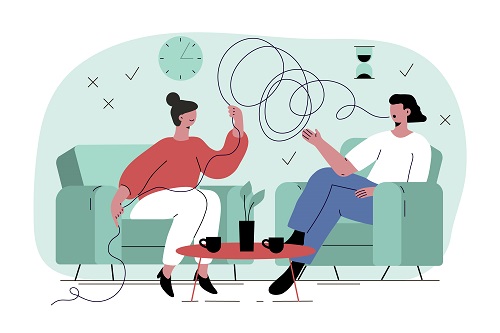Solution-focused Counseling
Solution focused counseling is a therapy which focuses on solution finding rather than looking at the history of the problem. Most of the other counseling techniques focus on problems and see the client as the creator of those problems. But solution-focused counseling takes a positive approach so far as the client is concerned, and puts emphasis on solution rather than the causes of the problem.
Key positive Assumptions of Solution Focused Counseling
(1) If it works, do more of it. If it does not work, do something different: We adopt a pragmatic approach in this type of counselling. We try a solution and if it does not work, we move on to another solution.
(2) Every client is unique, resourceful and capable of changing: Each client has his unique circumstances, capabilities, goals and resources. This approach aims at encouraging the client to recognize and apply his unique strengths and resources towards achieving his goal.
(3) Co-operative relationships enhance solutions: Counsellor and client relationship or cooperation holds the key of success in solution-focused therapy. Effective counselling relationships are made on a foundation on mutual respect and understanding between the counsellor and the client.
(4) Client Feedback improves outcome: It is a key assumption of Solution Focused Counseling that apart from co-operative and accountable relationship, obtaining formal feedback from the client increases the effectiveness of this counselling in a material way.
(5) No Problem is constant: There are always fluctuations in the rate and intensity of any problem. Solution-focused counsellor may ask the client to seek fluctuations and explore the outcomes. This process creates the possibility of finding more solutions to the problem and experimenting with these solutions to find a sustainable and most effective solution.
(6) Big Problems do not always require big solutions: It is a primary assumption of solution-focused counseling that one small change in any part of the problem system can bring about significant changes which may lead to the ultimate solution of the problem. The counsellor's job is to identify the small changes that can start a chain reaction to bring about more changes which result in solving the problem.



